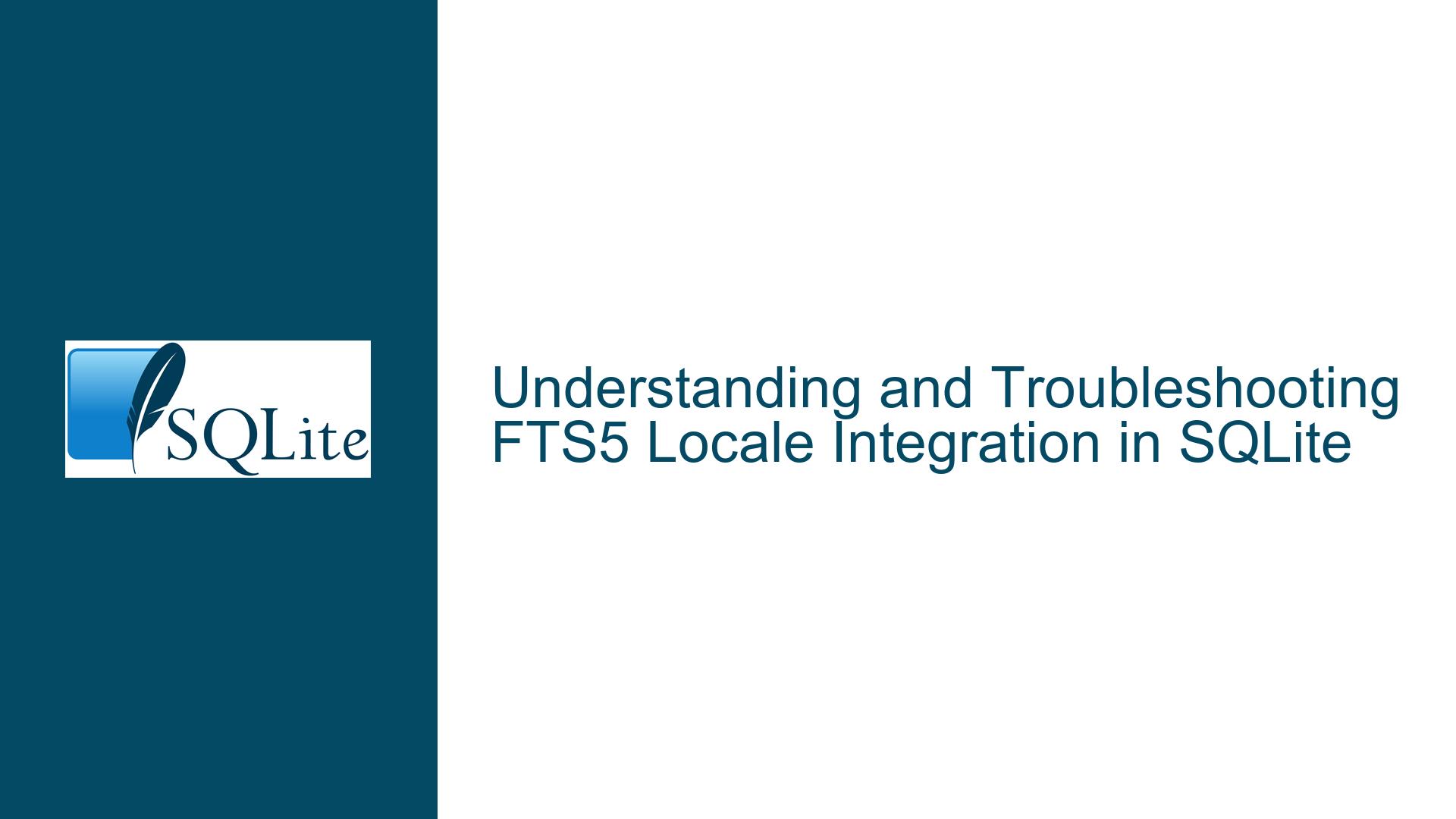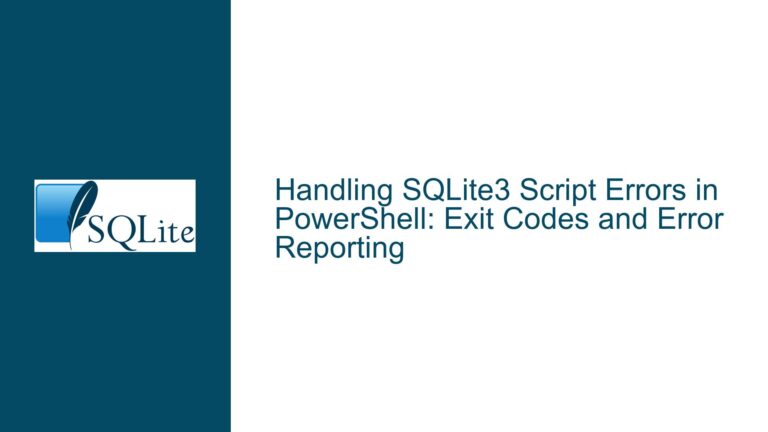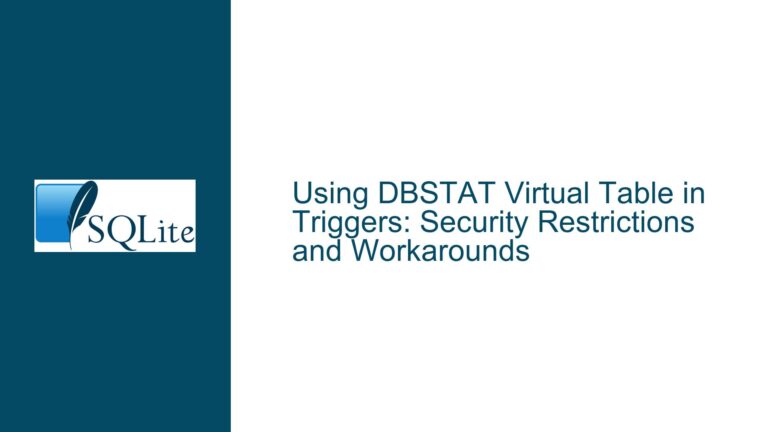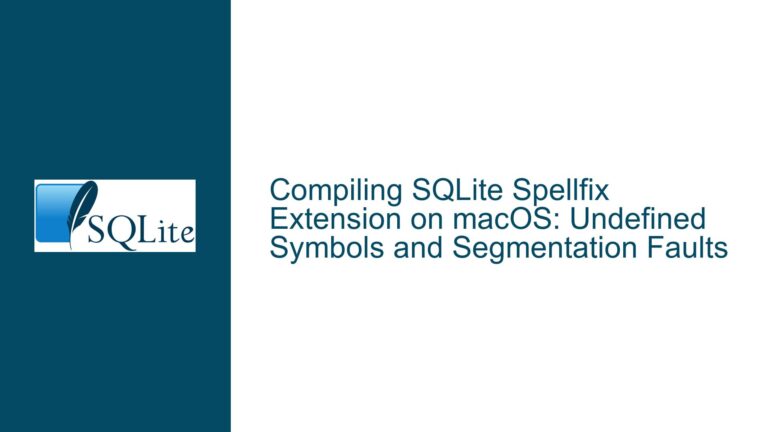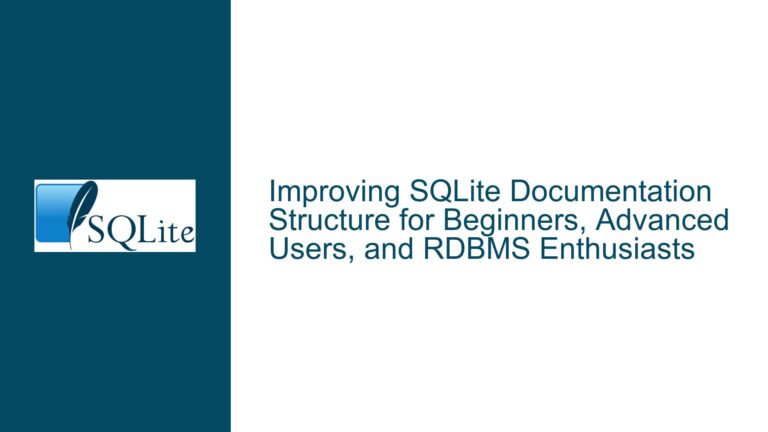and Troubleshooting FTS5 Locale Integration in SQLite
Goals and Implementation Details of FTS5 Locale Branch
The FTS5 (Full-Text Search) extension in SQLite is a powerful tool for enabling full-text search capabilities within SQLite databases. The fts5-locale branch introduces a new dimension to this functionality by incorporating locale-specific tokenization and auxiliary functions. This enhancement aims to provide dynamic locale support during queries, allowing for more nuanced and accurate text searches based on linguistic and regional differences. However, the integration of locale-specific features into FTS5 raises several questions and potential issues that need to be addressed to ensure seamless functionality.
The primary goal of the fts5-locale branch is to allow the specification of a locale (e.g., pt_BR for Brazilian Portuguese) dynamically during a query. This means that the tokenization process, which breaks down text into searchable tokens, can be influenced by the rules and conventions of the specified locale. For example, in Portuguese, the word "ação" should be tokenized differently than in English, where the diacritical marks might be ignored. The branch aims to provide a mechanism for this dynamic locale specification, but it also raises questions about how this affects the underlying data storage, tokenization process, and auxiliary functions.
One of the key concerns is whether the fts5-locale branch is attempting to store different data per locale. In other words, does the branch maintain separate tokenized data for each locale, or does it dynamically adjust the tokenization process based on the locale specified at query time? This distinction is crucial because it impacts both the storage requirements and the performance of the FTS5 extension. If the branch stores different data per locale, it could lead to increased storage overhead, especially for databases that need to support multiple locales. On the other hand, if the tokenization process is adjusted dynamically, it could introduce performance overhead during query execution.
Another important consideration is whether tokens remember the locale they arrived in. This is particularly relevant for auxiliary functions like xTokenize, which are used to tokenize text within the FTS5 extension. The xTokenize API is responsible for breaking down text into tokens, and its behavior could be influenced by the locale specified during the query. However, the current implementation of the porter tokenizer, which is one of the tokenizers available in FTS5, does not appear to have been updated to support locale-specific tokenization. This raises the question of whether the porter tokenizer should silently drop the locale information or if it should result in an error when a locale is specified.
Potential Issues with Locale-Specific Tokenization and Auxiliary Functions
The integration of locale-specific features into FTS5 introduces several potential issues that need to be carefully considered. One of the primary concerns is the compatibility of existing tokenizers with the new locale-specific functionality. The porter tokenizer, for example, is designed to handle English text and may not be suitable for tokenizing text in other languages. If the fts5-locale branch expects all tokenizers to support locale-specific tokenization, then the porter tokenizer may need to be updated or replaced with a more versatile tokenizer that can handle multiple locales.
Another potential issue is the performance impact of dynamic locale specification. If the tokenization process is adjusted dynamically based on the locale specified at query time, it could introduce additional overhead during query execution. This overhead could be particularly noticeable in databases with large amounts of text data or in applications that require frequent locale switching. To mitigate this issue, it may be necessary to optimize the tokenization process or provide caching mechanisms to reduce the impact of dynamic locale specification on query performance.
The behavior of auxiliary functions like xTokenize is also a critical consideration. The xTokenize API is used to tokenize text within the FTS5 extension, and its behavior could be influenced by the locale specified during the query. However, if the xTokenize API does not properly handle locale-specific tokenization, it could lead to incorrect or inconsistent search results. For example, if the xTokenize API ignores the locale information and tokenizes text according to a default locale, it could result in search results that do not match the user’s expectations.
Additionally, the fts5-locale branch may introduce challenges related to data consistency and integrity. If the branch stores different data per locale, it could lead to inconsistencies in the tokenized data, especially if the locale-specific tokenization rules change over time. This could result in search results that are inconsistent or incorrect, particularly if the tokenized data is not updated to reflect changes in the locale-specific tokenization rules. To address this issue, it may be necessary to implement mechanisms for ensuring data consistency and integrity, such as versioning the tokenized data or providing tools for re-tokenizing text when locale-specific rules change.
Strategies for Ensuring Compatibility and Performance in FTS5 Locale Integration
To address the potential issues with locale-specific tokenization and auxiliary functions in the fts5-locale branch, several strategies can be employed. First, it is essential to ensure that all tokenizers used in the FTS5 extension are compatible with locale-specific tokenization. This may involve updating existing tokenizers, such as the porter tokenizer, to support locale-specific tokenization or replacing them with more versatile tokenizers that can handle multiple locales. Additionally, it may be necessary to provide documentation and guidelines for developers who wish to create custom tokenizers that support locale-specific tokenization.
Second, it is important to optimize the tokenization process to minimize the performance impact of dynamic locale specification. This could involve implementing caching mechanisms to store tokenized text for frequently used locales, reducing the need to re-tokenize text for each query. Additionally, it may be beneficial to provide options for pre-tokenizing text based on specific locales, allowing developers to choose between dynamic tokenization and pre-tokenized data depending on their performance requirements.
Third, the behavior of auxiliary functions like xTokenize should be carefully considered to ensure that they properly handle locale-specific tokenization. This may involve updating the xTokenize API to support locale-specific tokenization or providing additional APIs that allow developers to specify the locale during tokenization. Additionally, it may be necessary to provide error handling mechanisms to ensure that tokenizers that do not support locale-specific tokenization do not silently drop locale information or produce incorrect results.
Finally, it is crucial to implement mechanisms for ensuring data consistency and integrity in the fts5-locale branch. This could involve versioning the tokenized data to track changes in locale-specific tokenization rules or providing tools for re-tokenizing text when locale-specific rules change. Additionally, it may be beneficial to provide documentation and guidelines for developers on how to manage locale-specific tokenized data to ensure consistency and integrity over time.
In conclusion, the fts5-locale branch introduces important enhancements to the FTS5 extension in SQLite by providing dynamic locale support during queries. However, this integration raises several potential issues related to tokenizer compatibility, performance, auxiliary function behavior, and data consistency. By carefully considering these issues and implementing appropriate strategies, it is possible to ensure that the fts5-locale branch provides robust and reliable locale-specific full-text search capabilities in SQLite.
